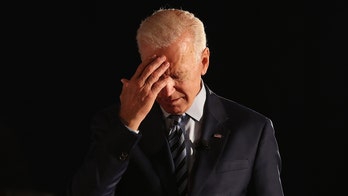JUNEAU, Alaska -- A key federal agency gave conditional approval Thursday to Shell Oil Co.'s plans to begin drilling in Arctic waters off Alaska's coast as early as next year.
Approval by the U.S. Bureau of Ocean Energy Management, Enforcement and Regulation, or BOEMRE, is contingent upon Shell securing other drilling, air quality and other necessary permits. But it represents a huge step toward Shell being allowed to start drilling in the Beaufort Sea.
Shell plans to drill up to four wells over two years in the Beaufort, beginning next year.
Michael Bromwich, BOEMRE's director, said the agency bases it decisions surrounding energy exploration and development in the Arctic on the best scientific information available.
"We will closely review and monitor Shell's proposed activities to ensure that any activities that take place under this plan will be conducted in a safe and environmentally responsible manner," he said.
But Rebecca Noblin, Alaska director of the Center for Biological Diversity, said the decision flies in the face of "promises of reform" made by the administration after the massive oil spill in the Gulf of Mexico last year. She said Shell does not have a realistic oil spill cleanup plan and that the technology and infrastructure do not exist to sufficiently respond to a spill in the Arctic, if one were to occur. She said the nearest Coast Guard station is more than 1,000 miles from where Shell plans to drill.
"This Administration is as willing as ever to rubber stamp dangerous drilling plans in the Arctic Ocean," she said.
Shell, in responding to critics, has said that if necessary it's prepared to deploy "the most robust Arctic oil spill response system known to industry." The company has said its oil spill response capability exceeds its "calculated worst-case discharge volume" for the wells proposed.
Spokesman Curtis Smith said Shell is committed to building an oil spill capping system that would capture hydrocarbons at the source "in the extremely unlikely event of a shallow water blowout." He also said in a release that the company would "employ world-class technology and experience to ensure a safe, environmentally responsible Arctic exploration program, one that has the smallest possible footprint on the environment and no negative impact on North Slope or Northwest Arctic traditional subsistence hunting activities."
A Shell spokeswoman, Kelly op de Weegh, said the agency's decision added to the company's cautious optimism that it will be drilling on its Alaska leases this time next year. Op de Weegh said the company expects to submit for approval its applications to drill sometime in 2012.
There remain a list of authorizations and permits that Shell needs to acquire first to proceed. Smith said typically such permits have fallen in line after a development plan is approved. But he said air quality permits are somewhat different, in that they can be appealed by anyone who commented on them, and hold things up.
The Environmental Protection Agency has released for public review draft air quality permits for Shell projects in the Beaufort and Chukchi seas. BOEMRE hasn't yet issued a decision on Shell's development plan for the Chukchi. Shell is eyeing 2012 for work in the Chukchi, as well.




